It's a truly sad day, as one of Hollywood's most impactful talents, the trail-blazing Sidney Poitier, has died. He was 94.
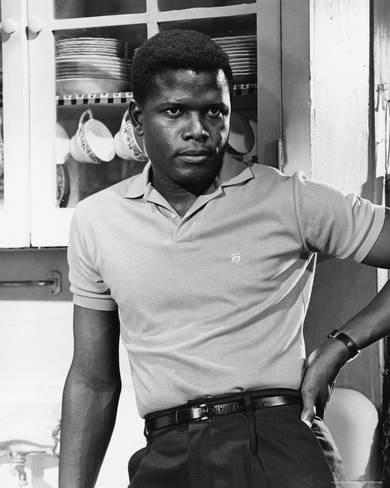
His passing was confirmed, with no details, by Bahamas Minister of Foreign Affairs Fred Mitchell. No specific cause was given.
In December, it had been announced that a play about the legend's life, entitled SIDNEY, by Charles Randolph-Wright, was aiming for a Broadway bow. Its team reportedly features one of Poitier's six daughters, Anika Poitier.
Poitier came into the world as a surprise. He was born two months premature when his Bahamian farmer parents were visiting Miami, on February 20, 1927. The youngest of seven children, the unusual circumstances of his birth afforded Poitier American citizenship, though he grew up on Cat Island and Nassau in the Bahamas.
As a teen, Poitier moved to Miami and then to NYC, living with relatives. Underage, he faked his birth date and served during WWII at a psychiatric hospital, where he was so repulsed by mistreatment of patients he pretended to have a mental disorder of his own and was discharged early. It would set the tone for his life and career, as that of a figure with a sense of dignity and fiercely moral center.
He was cast in an American Negro Theater production while working as a dishwasher, and went on to make his Broadway debut in the flop 1946 production of Lysistrata. He also appeared on Broadway in Anna Lucasta (1947).
No Way Out (1950), his film debut, found Poitier playing a Black doctor treating a white bigot (Richard Widmark) in a Joseph L. Mankiewicz-directed drama co-starring Linda Darnell and Stephen McNally. It was the first of many films that would become building blocks in an unusually three-dimensional career as a Black actor in Hollywood.
After Cry, the Beloved Country (1951), about a minister in search of his missing son, and the WWII action flick Red Ball Express (1952), Poitier broke through to crossover stardom with the Glenn Ford-starring Blackboard Jungle (1955), a rock-driven drama about "teen savages" in which he played a musically gifted rebel. With The Defiant Ones (1958), Poitier earned his first of two Oscar nominations for Best Actor for playing one of two escaped convicts (with Tony Curtis) who are handcuffed together. Poitier's nomination made him the first non-white nominee for Best Actor.
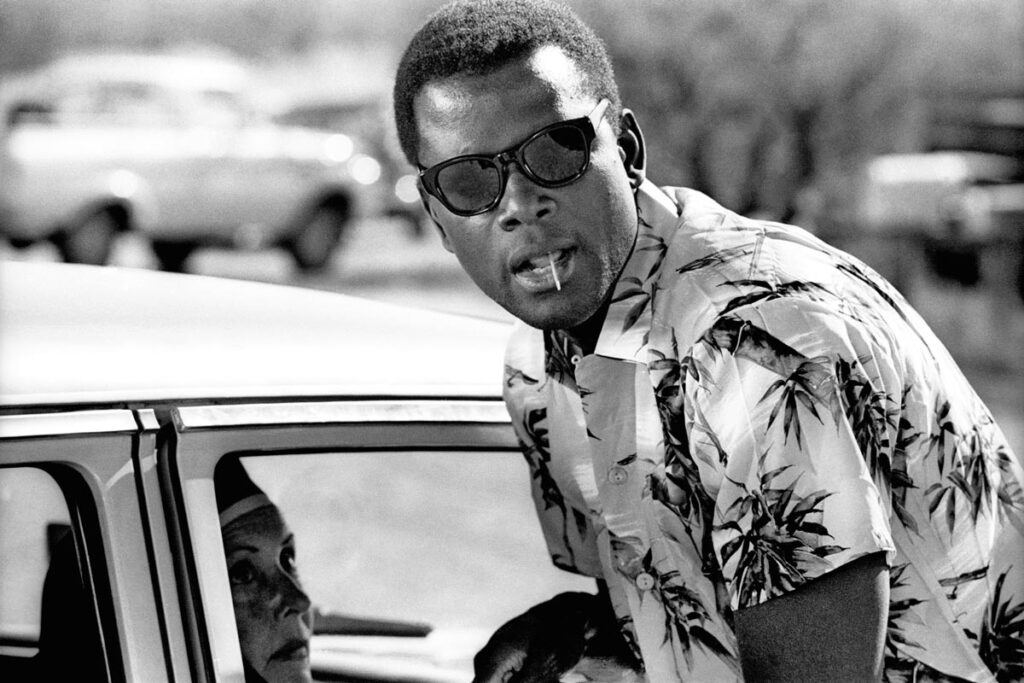
Back on Broadway, Poitier starred in the first production of Lorraine Hansberry's A Raisin in the Sun, one of the most impactful plays of the era, winning the Tony for Best Actor. The original New Yorker review included this passage in its rave:
"After several curtain calls, the audience began to shout for the author, whereupon Mr. Poitier leaped down into the auditorium and dragged Miss Hansberry onto the stage. It was a glorious gesture, but it did no more than the play had already done for all of us. In spirit, we were up there ahead of her."
He recreated his role in the 1961 film version.
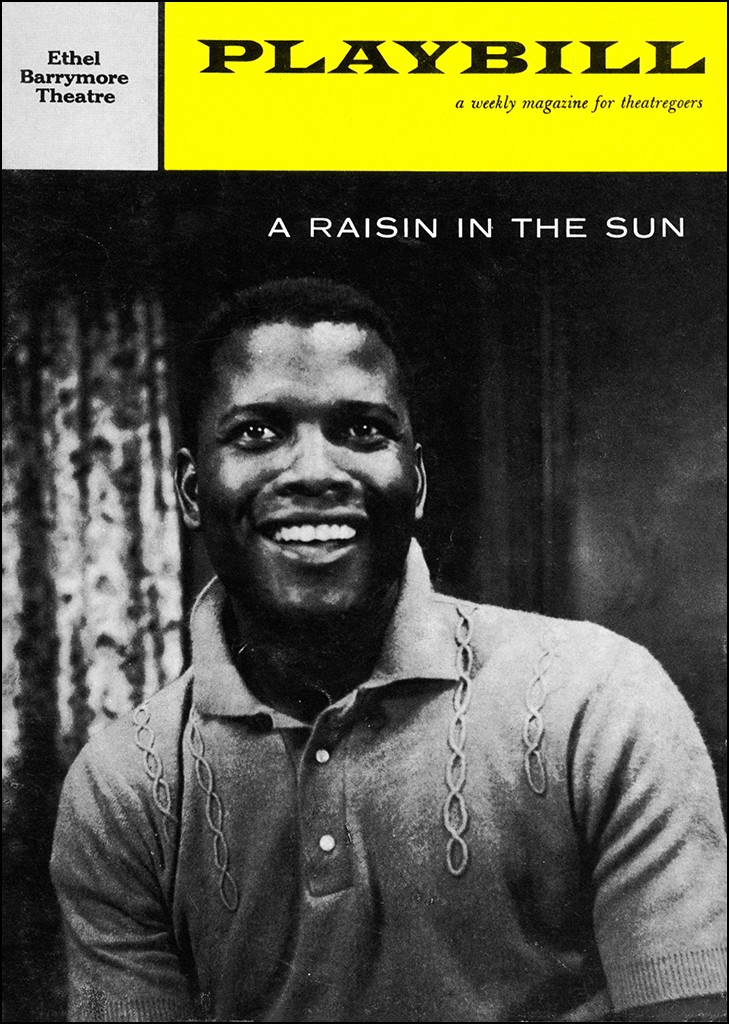
In 1959, Poitier starred in the film adaptation of Porgy and Bess (1959) with Dorothy Dandridge, the year he began a nearly 10-year relationship with fellow actor Diahann Carroll.
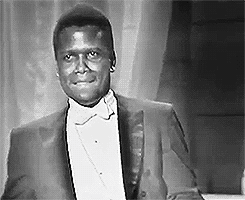
In 1963, Poitier starred in Lilies of the Field, co-starring Lilia Skala and Stanley Adams. The dramedy about an itinerant worker encountering a group of nuns who believe he is a literal godsend led to his second Oscar nomination for Best Actor. Though not his finest film performance, he won, making Poitier the first Black man to win a competitive acting Oscar. Before him, Hattie McDaniel had won Best Supporting Actress for her work in Gone with the Wind (1939) and James Baskett, who played Uncle Remus in Song of the South (1946), was given an honorary Oscar in 1948 — Baskett had not even been considered for Best Actor or Best Supporting Actor.
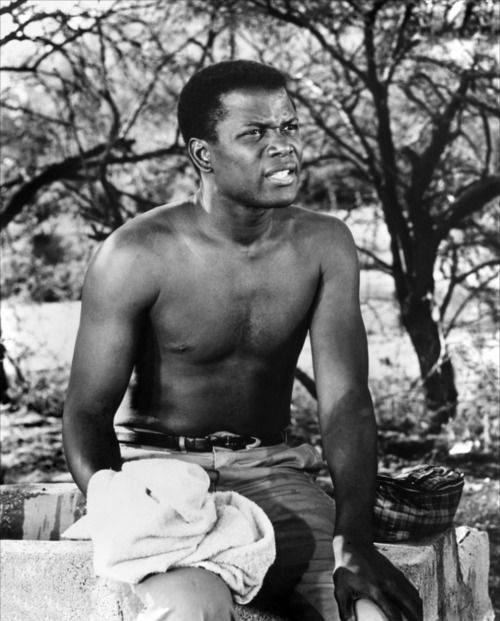
In spite of Poitier's unique place in film history and several other stellar performances, he was never again nominated for an Oscar.
Next, Poitier starred in the 1965 films The Bedford Incident, a Cold War thriller with Widmark again; the Biblical epic The Greatest Story Ever Told; and A Patch of Blue with Elizabeth Hartman and Shelley Winters, about a blind white girl befriended by a Black man.
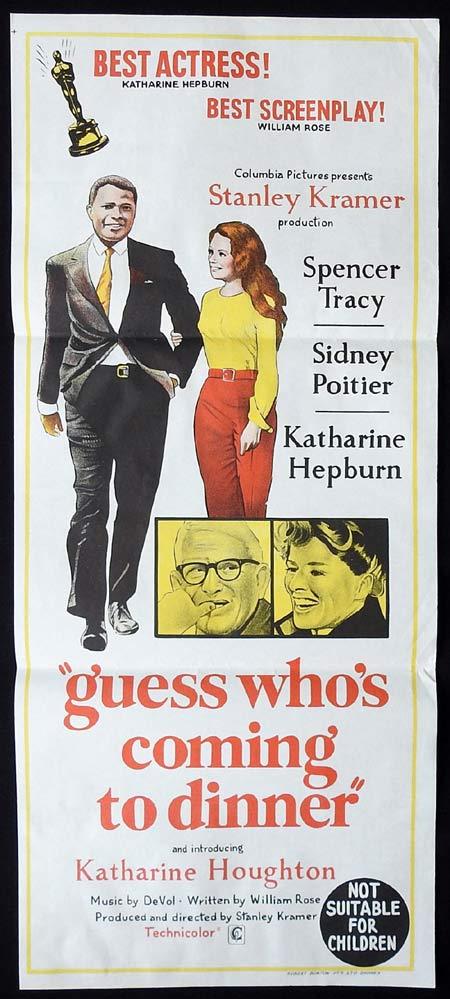
Unquestionably, Poitier's creative and popular peak arrived in 1967, when he was the #1 draw at the U.S. box office. He starredin the back-to-back hits To Sir, with Love, In the Heat of the Night and Guess Who's Coming to Dinner. Each film dealt with racial issues, the latter portraying an interracial marriage (between Poitier's character and Katharine Houghton's) mere months after marrying outside one's race had become legal in 17 holdout U.S. states.
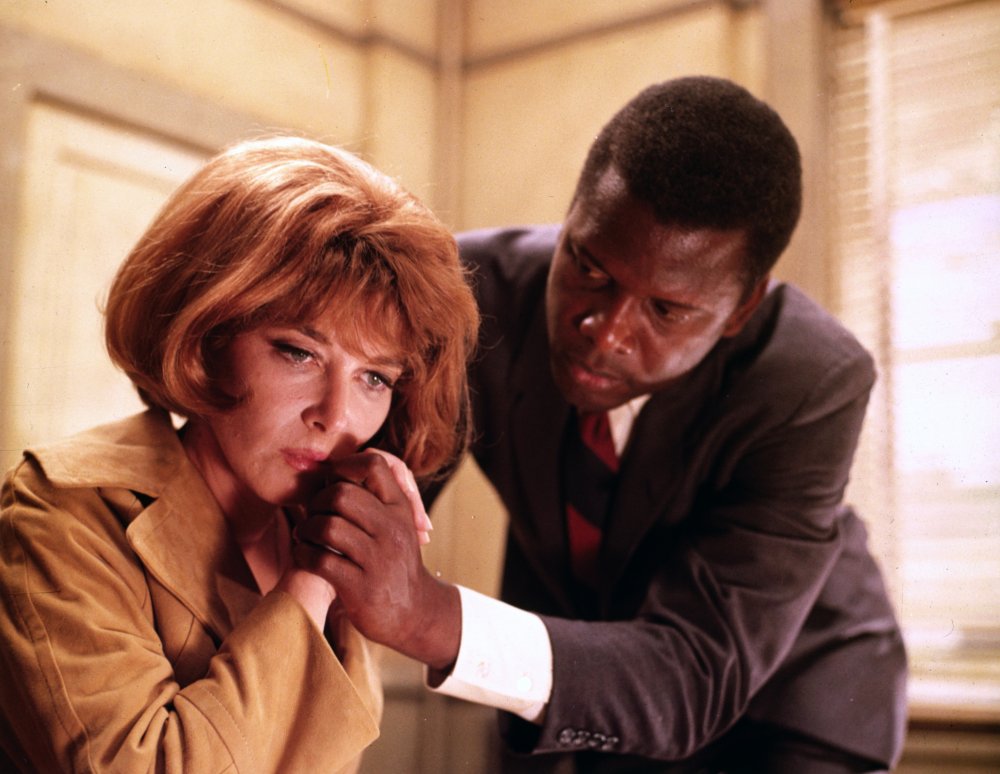
In the Heat of the Night, a southern mystery, spawned two, less highly regarded, movie sequels, They Call Me MISTER Tibbs! (1970) and The Organization (1971).
On Broadway for one final time, Poitier directed the unsuccessful Carry Me Back to Morningside Heights (1968), about a Jewish man who becomes a slave to a Black student to do penance for racial injustice, starring Louis Gossett Jr., Diane Ladd and Cicely Tyson. He went on to direct the films Buck and the Preacher (1972), A Warm December (1973), Uptown Saturday Night (1974), Let's Do It Again (1975), A Piece of the Action (1977), Stir Crazy (1980), Hanky Panky (1982), Fast Forward (1985) and Ghost Dad (1990), frequently collaborating with Richard Pryor and with Bill Cosby.
Stir Crazy was, by far, Poitier's most successful film as a director, a box-office smash starring Richard Pryor and Gene Wilder that contains a now-controversial blackface sequence.
His later film roles included Little Nikita (1988), Sneakers (1992) and The Jackal (1997), and he also appeared in a variety of TV movies and miniseries, including Emmy-nominated performances as Supreme Court Justice Thurgood Marshall in Separate but Equal (1991) and Nelson Mandela in Mandela and de Klerk (1997). He reprised one of his famous roles for To Sir, with Love II (1996), and his final work in any medium was his starring role in TV's The Last Bricklayer in America (2001).

Poitier was given an honorary Oscar in 2002, making a rare appearance at the ceremony in 2014 to present Best Director.
Knighted by Queen Elizabeth II in 1974, he was a 1995 Kennedy Center Honoree, and in 2009 was awarded the Presidential Medal of Freedom by President Obama.
Poitier had been the oldest living Best Actor Oscar winner. (Gene Hackman is now the oldest, Joanne Woodward is the oldest living Best Actress Oscar winner, Eva Marie Saint is the oldest living Best Supporting Actress Oscar winner and Joel Grey is the oldest living Best Supporting Actor Oscar winner).
A 1992 recipient of the AFI Life Achievement Award, Poitier had been the last surviving honoree on AFI's list of 25 top male stars of Hollywood's Golden Era, all of whom made their film debuts in 1950 or before. They're all gone now. The only living honoree from the list of 25 top female stars is Sophia Loren.
Poitier was married to Juanita Hardy from 1950-1965. He married actress Joanna Shimkus in 1976, and is survived by her, their two daughters, and by his four daughters with Hardy.

